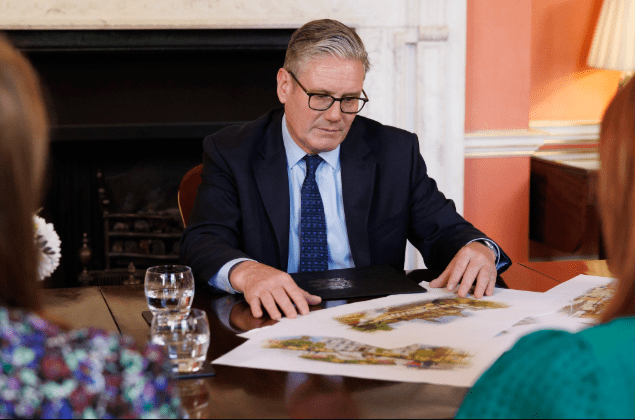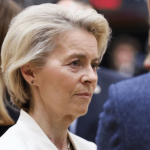UK Launches First Comprehensive Trade Blueprint in Over 30 Years
Prime Minister Keir Starmer has unveiled Britain’s first standalone trade strategy in more than three decades, outlining a sweeping £85 billion plan to help UK businesses navigate the global challenges posed by Donald Trump’s trade tariffs.
The strategy, presented amid continued upheaval in international supply chains, is being described as a key part of Starmer’s broader “Plan for Change.” It’s designed to unlock £5 billion in new opportunities for British firms and boost UK Export Finance (UKEF) capacity to £80 billion.
This ambitious policy blueprint comes just days after Sir Keir finalised the bulk of a landmark post-Brexit trade deal with US President Donald Trump during the G7 summit in Canada. The agreement is set to form the foundation for further international partnerships, particularly in cutting-edge sectors like artificial intelligence.
Sir Keir remarked: “What works for business, works for Britain. It means more jobs, more opportunities, and more money in people’s pockets.”
He added: “That’s why I’ve backed British industry through global headwinds—securing major trade deals with the US, India and the EU that protect jobs and drive growth right across the country.
“Today’s trade strategy is a promise to British business: helping firms sell more, grow faster, and compete globally. It’s about delivering growth as part of our Plan for Change—and making sure working people feel the benefits.”
The prime minister has recently sealed a Brexit reset agreement with the EU and a comprehensive trade pact with India. Talks are ongoing with the Gulf States, and exploratory discussions are underway with China and parts of Africa.
This latest strategy underscores a broader shift, giving British companies quicker access to global markets. It follows the launch of the E-Commerce Trade Hub, projected to increase trade by £7 billion.
Margo Forgione, Director General of the Chartered Institute of Export and International Trade, who led the two-year project behind the hub, noted: “Digital trade is a high-growth route for the UK economy. If we give firms the tools they need, they will do the rest. That’s what this blueprint offers: a credible roadmap to help businesses scale across borders.”
He added: “All the evidence shows that businesses which trade internationally are more resilient, more sustainable, employ more people, are more innovative, and are more profitable.”
Business Secretary Jonathan Reynolds highlighted the challenges of current geopolitical tensions, saying: “The UK is an open trading nation but we must reconcile this with a new geopolitical reality and work in our own national interest.
“Our trade strategy will sharpen our trade defence so we can ensure British businesses are protected from harm, while also relentlessly pursuing every opportunity to sell to more markets under better terms than before.”
The strategy includes plans to:
- Promote mutual recognition of qualifications to boost the UK’s global standing in services.
- Expand on green and clean energy agreements with partners like Japan, Norway, and South Korea.
- Seek deeper cooperation with emerging markets such as Brazil, Mexico, and the Philippines.
Additionally, the UK will join the Multi-Party Interim Appeal Arbitration Arrangement (MPIA), reinforcing its commitment to a rules-based global trading system.
Industry leaders have welcomed the publication of the strategy. Ian Stuart, Chief Executive of HSBC UK, said: “The strategy rightly recognises the challenges many exporters face at a time of heightened global uncertainty. This is a necessary first step in giving businesses the tools they need to thrive on the world stage.”
Shevaun Haviland of the British Chambers of Commerce echoed the sentiment, stating: “The Trade Strategy sets out a clear, evidence-based approach to raising the UK’s export game..”
Jon Holt, Group CEO of KPMG, said: “Today we have a clear plan. From removing barriers to overseas markets, to making it easier for our highly skilled people to travel and work across borders, this approach will strengthen our connectivity, boost inward investment and make sure our sector remains globally competitive.”
One of the biggest early beneficiaries is the UK car industry. Sir Keir’s visit to Jaguar Land Rover coincided with President Trump’s commitment to scrap tariffs on British-made vehicles.
Mike Hawes, Chief Executive of the Society of Motor Manufacturers and Traders (SMMT), said: “Balanced trading relationships that break down tariffs and other barriers to trade will enable automotive companies to grow and get great British products into the hands of consumers all over the world, boosting jobs, business and prosperity at home.”






